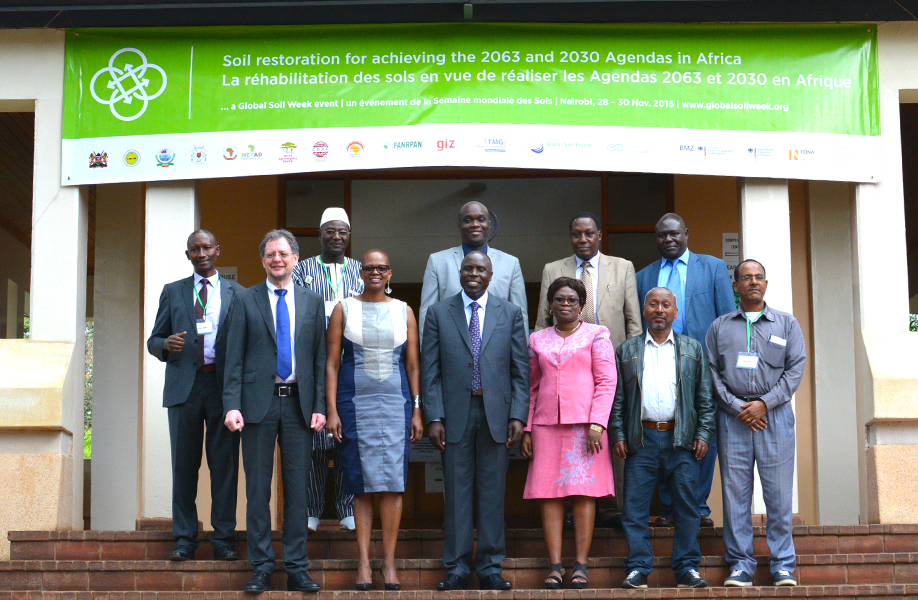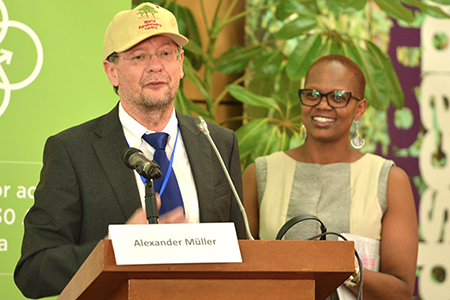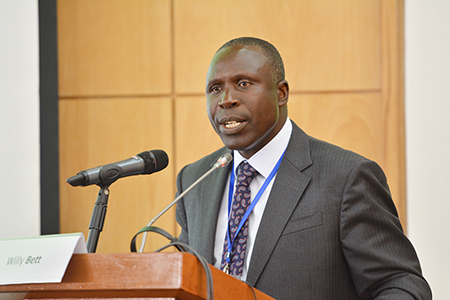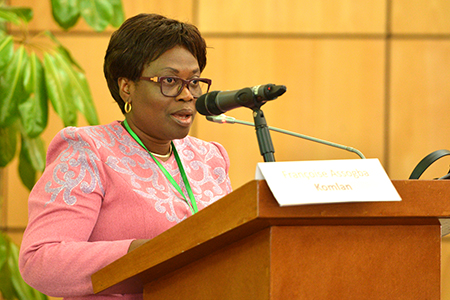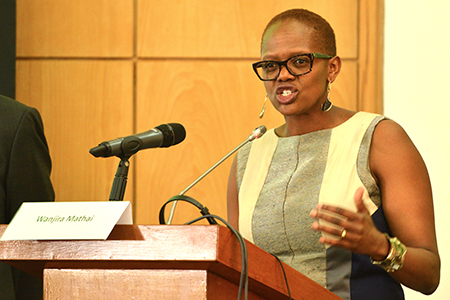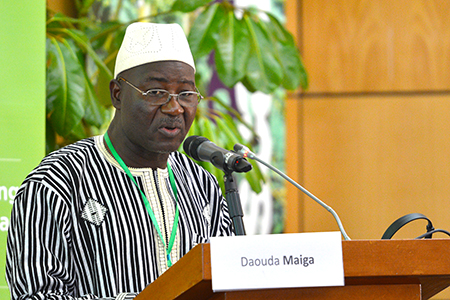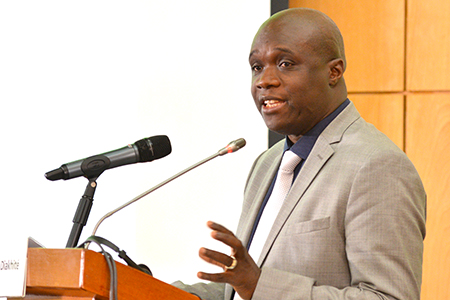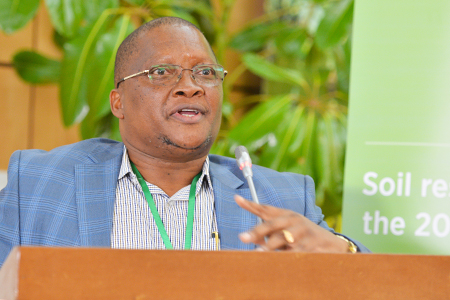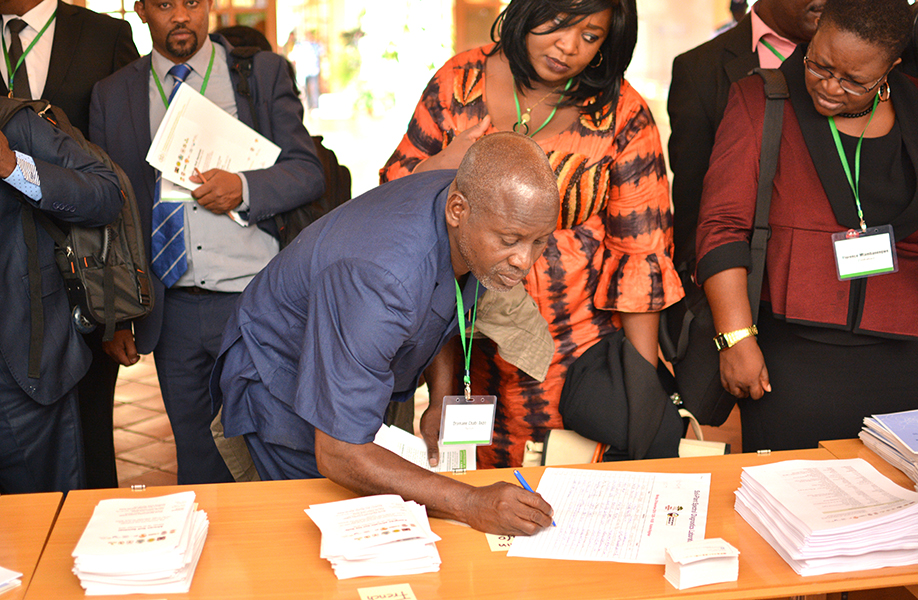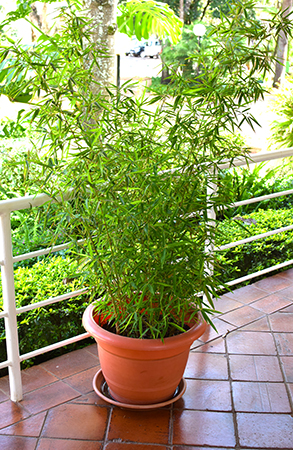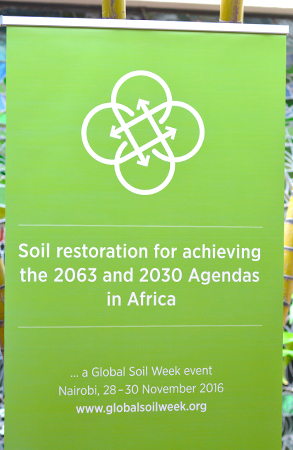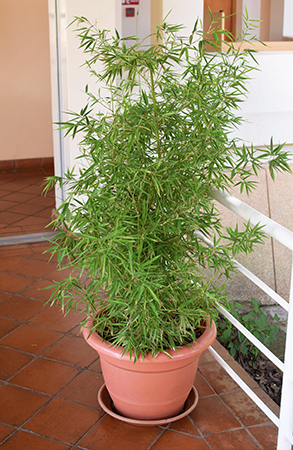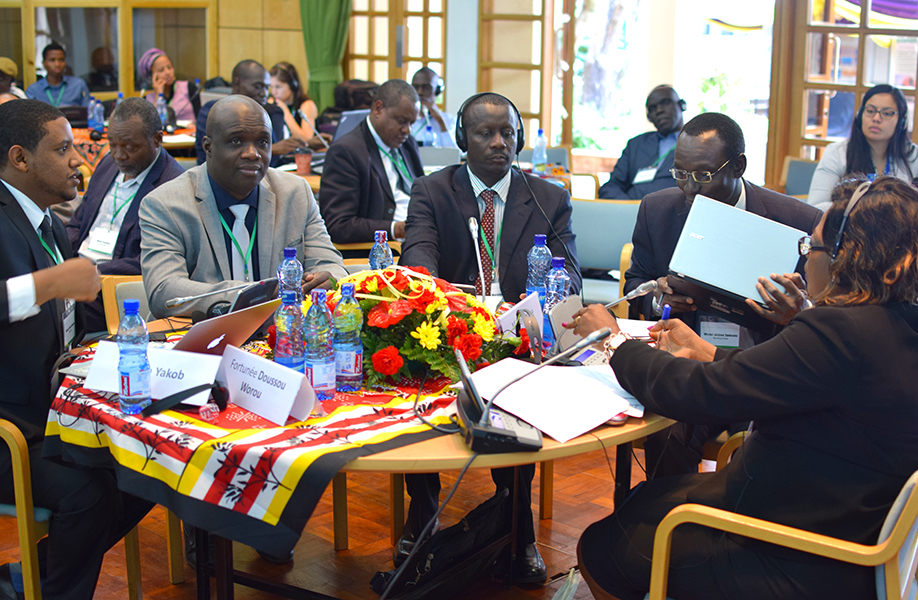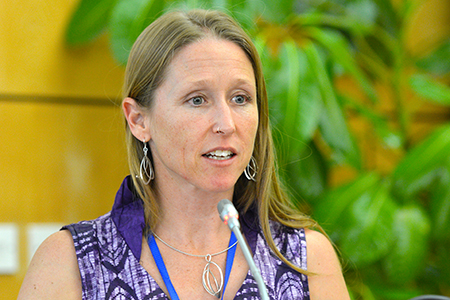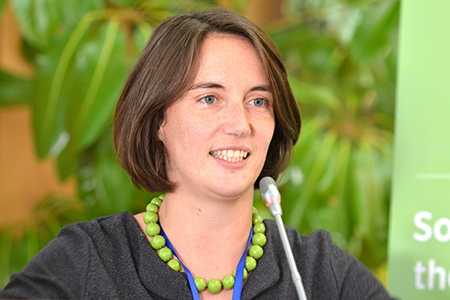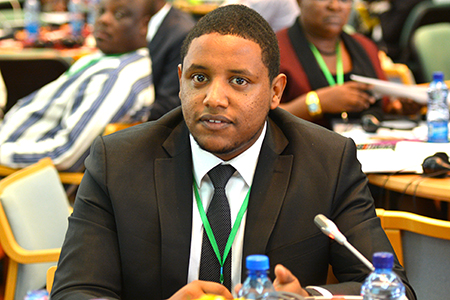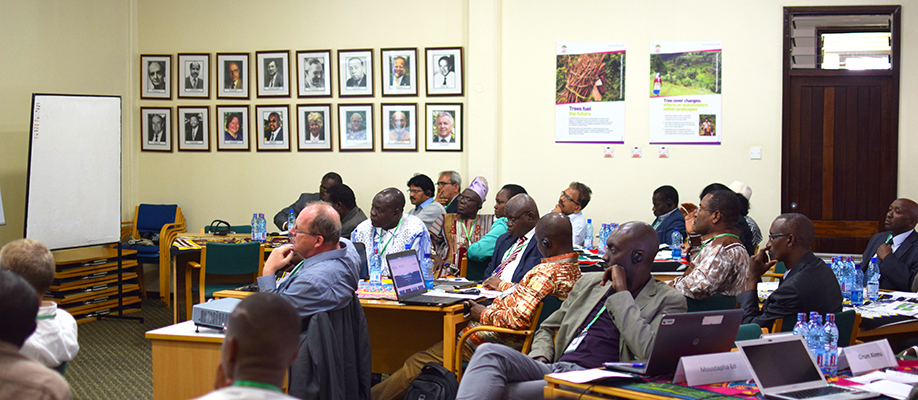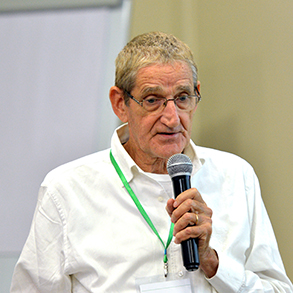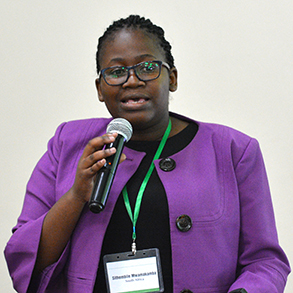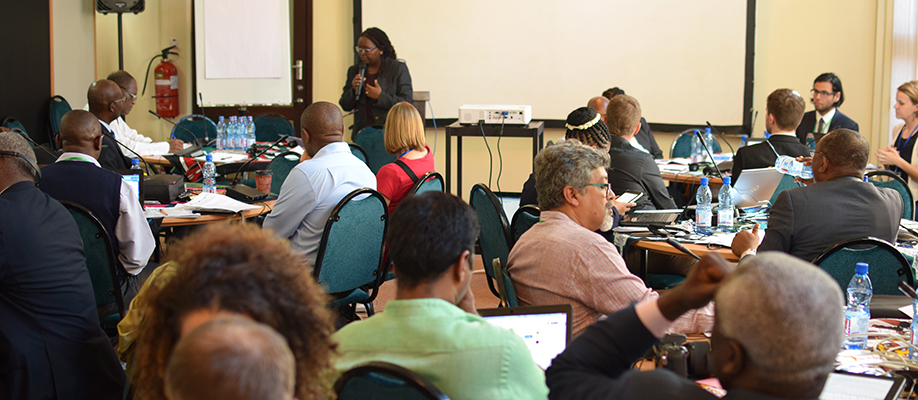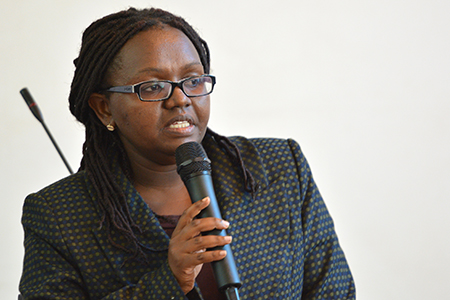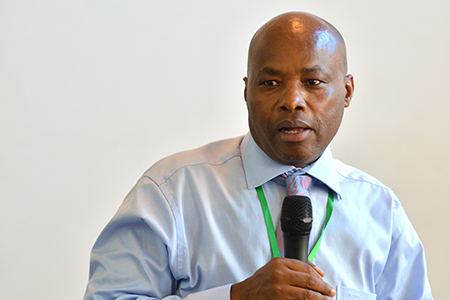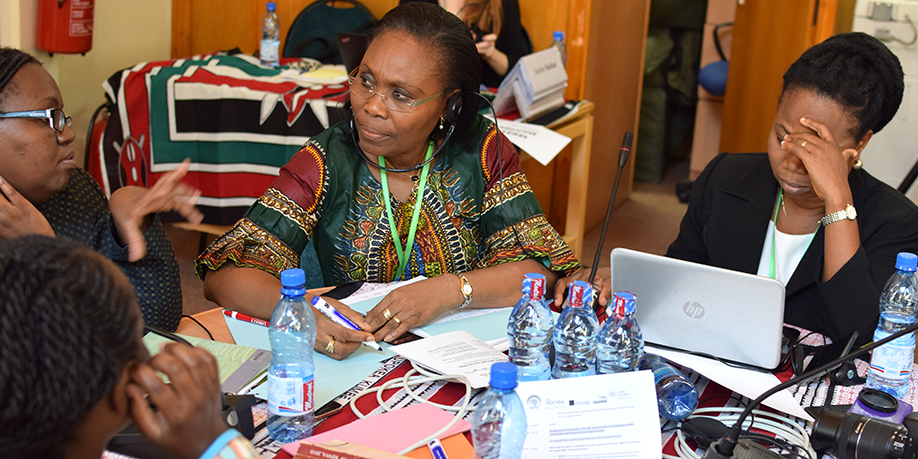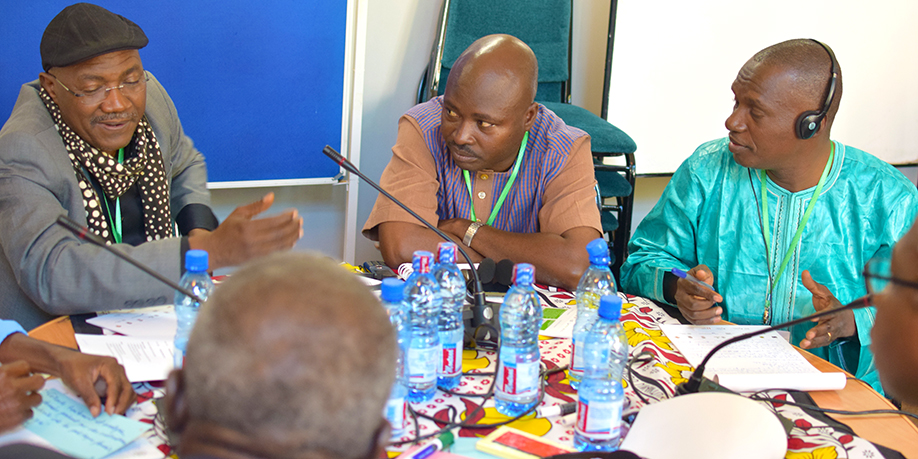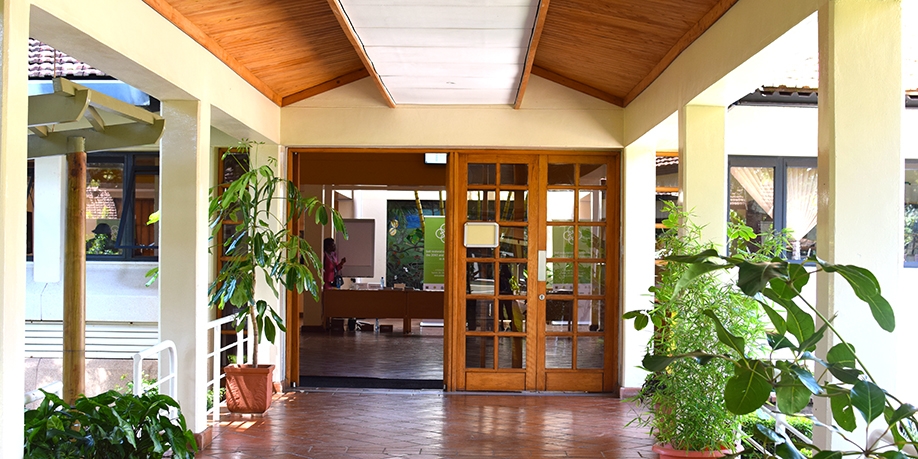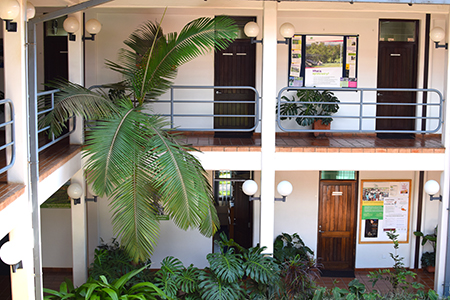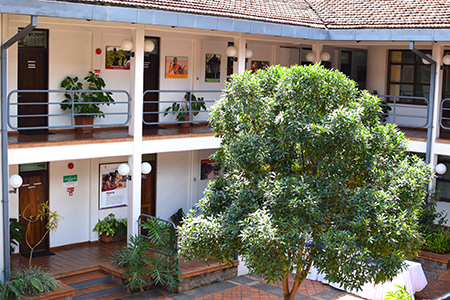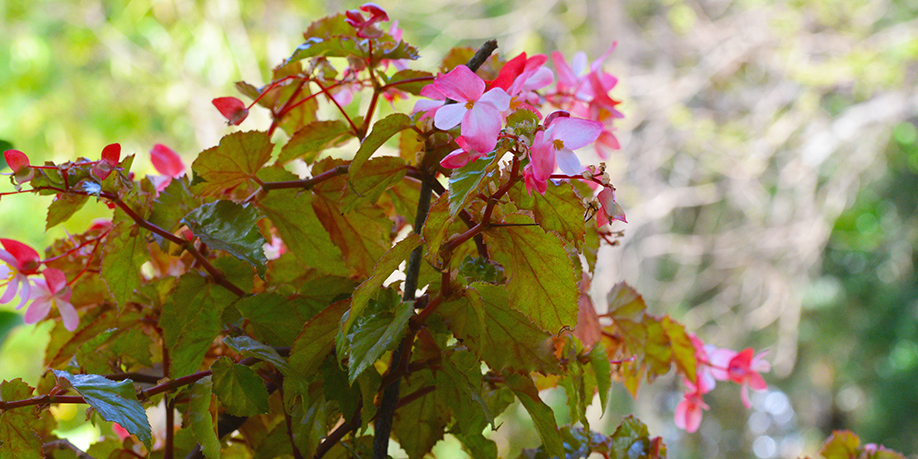Summary
The first Global Soil Week regional meeting, convening African soil and land management stakeholders, opened today at the World Agroforestry Centre (ICRAF) headquarters in Nairobi, Kenya. The three-day meeting will address the theme, ‘Soil Restoration for Achieving the 2063 and 2030 Agendas in Africa: Linking Global Ambitions to Local Needs.’
The African Soil Seminar was conceived by African stakeholders at the Global Soil Week 2015, who expressed strong interest in creating a regional African platform for sustainable soil and land management. Around 150 participants from government, research institutions, non-governmental organizations, agricultural technology services providers and other sectors are attending the Seminar, which is co-organized by the Institute of Advanced Sustainability Studies (IASS Potsdam) and ICRAF, with support from the German Federal Ministry for Economic Cooperation and Development, BMZ.
During the opening plenary, speakers representing the Co-Host governments and Facilitating Partners highlighted their experiences and perspectives on soil restoration and sustainable land management. In the afternoon, the first set of thematic discussions took place, addressing the sub-themes of soil carbon and climate change, land governance and water management. The discussions involved presentations and panel discussions on three themes. The first session was facilitated by the Kenya Agricultural & Livestock Research Organization, ICRAF and the Global Soil Forum – IASS. It explored the central question of: “What would it mean to prioritize smallholder food security in linking soils and climate, and highlighted at the levels of policy and programming, research and technology, and implementation?” The second thematic session, facilitated by the Food, Agriculture and Natural Resources Policy Analysis Network (FANRPAN), German Agency for International Cooperation (GIZ) and the Global Soil Forum - IASS, explored how multi-stakeholder processes can enhance the inclusion and recognition of rights of impoverished and marginalized user groups in policy design.
The final thematic session was facilitated by the Network of African National Human Rights Institutions (NANHRI), Katiba Institute, Kenya, Deutsches Institut für Menschenrechte (DIMR), and Töpfer, Müller, Gaßner – ThinkTank for Sustainability (TMG). Participants discussed possible designs for nationally owned, multi-stakeholder monitoring and learning processes that bridge the gap between international and national policy aspirations to improve land governance for vulnerable and marginalized people.
IISD Reporting Services, through its ENB+ Meeting Coverage, has provided a summary of the African Soil Seminar on the 3rd of December 2016, which is available in HTML and PDF.
Photos by IISD/ENB | Herman Njoroge Chege
For photo reprint permissions, please follow instructions at our Attribution Regulations for Meeting Photo Usage Page.
Plenary I: Harnessing Soil Policies for the 2063 and 2030 Agendas
African Soil Seminar Co-Chairs pose with representatives of Host Goverments
African Soil Seminar Co-Chair, Alexander Müller, Töpfer, Müller, Gaßner – ThinkTank for Sustainability (TMG) and Study Lead TEEB AgriFood, Germany, makes opening remarks, watched by Co-Chair Wanjira Mathai, Partnerships for Women's Entreprenership in Renewables (wPOWER), Wangari Maathai Institute for Peace and Environmental Studies (WMI), Kenya
Willy Bett, Cabinet Secretary for Agriculture, Livestock and Fisheries, Kenya
Françoise Assogba Komlan, Cabinet Secretary, Ministry of Agriculture, Livestock and Fisheries, Benin
Co-Chair, Wanjira Mathai
View of the room during the opening plenary
Daouda Maiga, Technical Advisor, Ministry of Agriculture, Water Resources and Fisheries, Burkina Faso
Mamadou Diakhite, Principal Programe Officer, Sustainable Soil and Water Management at NEPAD, South Africa
Boniface Kiteme, Centre for Training and Integrated Research in ASAL Development (CETRAD), Kenya
Solomon Tefera, Director, Soil Fertility Improvement, Ministry of Agriculture and Natural Resource Development, Ethiopia
Participants register for the African Soil Seminar
Soil Carbon for Climate and Development
Panelists of the Soil Carbon for Climate and Development thematic session
Leigh Winowiecki, ICRAF
Anne Flohr, IASS Potsdam, Germany
Michel Jérôme Tankoano, Program of Partnership for Sustainable Land Management, Burkina Faso
Fortune Doussou Worou, Ministère du cadre de vie et du Développement durable, Benin
Binyam Yakob, Environmental Law Expert & National Climate Change Negotiator at Ministry of Environment, Forest and Climate Change, Ethiopia
Mamadou Diakhite, Principal Programe Officer, Sustainable Soil and Water Management at NEPAD, South Africa
Soil and Landscape Restoration for Water Security
Participants follow the thematic session on Soil and landscape restoration for water security
Paul Kleen, Consultant, Agro-Socio-Economist, GRAF, Burkina Faso
Sithembile Mwamakamba, Food, Agriculture and Natural Resources Policy Analysis Network (FANRPAN), South Africa
Dougbedji Fatondjiwau,
Researcher, International Crops Research Institute for the Semi-Arid Tropics (ICRISAT), Niamey, Niger
Human Rights-Based Monitoring & Learning Processes for Responsible Land Governance
Participants of the Human Rights-Based Monitoring and Learning Processes session
Christine Njeru-Kuria, Kituo Cha Sheria, Kenya
Karuti Kanyinga, Institute of Development Studies, Kenya
Participants discuss responsible land governance
Around the Venue
